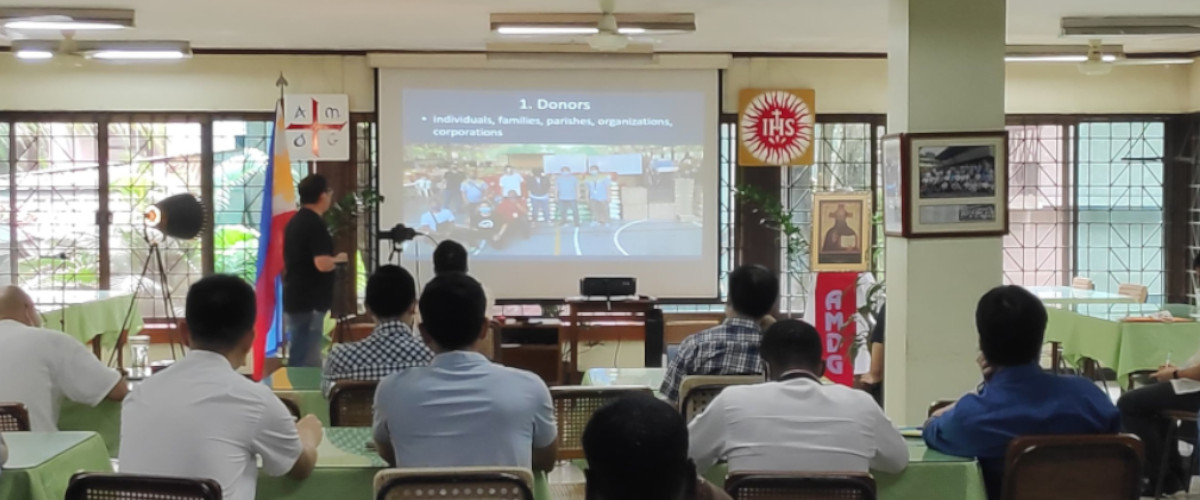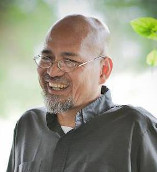
Recent challenges have affected the Philippines: typhoons (Quinta, Rolly and Ulysses) and its destructive consequences: floods, destruction of houses, and displacement of families; the Covid 19 pandemic and its effects: loss of jobs, businesses downsizing or closing, virus infections and contagions, deaths, lack of PPEs, need for dormitories, shuttles for frontliners, mental health issues; the Drug War, which has killed an estimated 30,000 people with grieving families left behind; and the Marawi siege in 2017 that destroyed the city with heavy bombardment and until now has only been partially rehabilitated.
All these difficulties have shown us that no gifts are too small, so that when put together contribute much for the greater good. “A little from many becomes much. Each of us can contribute the little that we can and do our part,” said Fr Francisco. Jesuit scholastics, seminarians, students, even the security guards helped repack goods for the urban poor, the typhoon victims, and the jobless jeepney (local transport) drivers. Fr Francisco shared he was surprised to learn that a recipient community under a parish had repacked and divided the packages they received to be able to share them with more people in need. Besides giving donations for relief packs, Fr Francisco also suggested that working people pool a part of their salaries together to support scholars.
While the Catholic Church is subsumed under the Kingdom of God, the Kingdom of God is bigger than the Catholic Church. One time the volunteers asked: “Do we also share the relief goods to the Muslims in Quiapo (a district in Manila)? Fr Francisco answered: “Of course, we should serve everyone.” As if he was saying: “God will not ask if you are Catholic or Muslim. We just care.”
Indeed, the Body of Christ has unique gifts to offer. Vice President Robredo has the unique gift of being an alternative lawyer, an economist, and a grassroots activist. She has been an advocate of the dignity of every person, especially during the Drug War, with incidences of extrajudicial killings. Like a mother she sought partners to support the victims’ grieving families. She has also been very active in responding to the victims of typhoons and the Marawi siege, and the Covid- 19 pandemic frontliners. Given only a small budget, she sought and harnessed partnerships for providing temporary shelters and dormitories, food, locally sourced PPEs, facemasks, shuttles, farm tools, and useful information to empower the people affected. Some Jesuit schools and alumni have responded by providing temporary shelters for the patients, doctors, nurses, and other people in the frontlines. Fr Francisco, a composer of songs used to orchestrating productions and a systematic theologian, connected farmers, fishermen, local government units, military personnel (marines, coastguards), alumni of Jesuit schools, and village residents to provide relief goods. The Center for Family Ministries, through some of its volunteers helped out in providing psycho-spiritual support and gave talks for those affected by the pandemic.
What narrative is coming out of these initiatives? Fr Francisco was asked what keeps him going despite his heavy schedule. The teary-eyed jeepney drivers tell him: “Thank you, Father, you did not forget us.” We see a story of a God who remembers and listens to His People at the fringes and margins of society.







